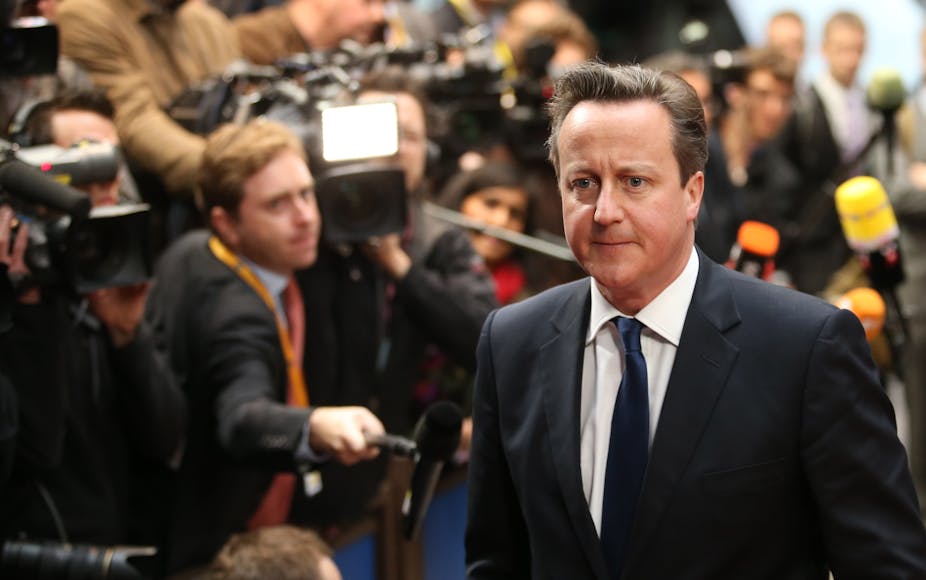One of the most heavily reported outcomes of last week’s elections for the European Parliament has been the “revolution on the right” – the large numbers of people who opted to vote for far right, Eurosceptic parties. And one thing is definitely borne out by the figures: European citizens signaled their frustration with the political class by voting for insurgent parties of both left and right.
There has been a general feeling that voting for insurgent parties would somehow hold the mainstream parties to account. And because most countries view the European parliamentary elections to be of “second-order” importance, where less is at stake, the weekend provided an ideal platform with which to make a protest.
Three parties, including the French Front National, British UKIP, and the Danish People’s Party claimed a sweeping victory, topping the polls in their respective countries. In Hungary, Jobbik comfortably claimed the second spot. And in Austria, Finland, the Netherlands and Greece, far right parties finished in third place with most of them achieving double-digit figures.

But before getting too carried away it is worth looking at the overall turnout in the elections, which has been estimated at 43.09%, roughly similar to 2009 but, when taken on a trend line since 1979 – when nearly 62% of people voted – shows a continuing relative lack of interest in the EU elections. And even a vote of 27%, as UKIP achieved in the UK, must be qualified by the fact that only 34% of registered voters cast their ballots.
Right has winners and losers
It is also worth take a closer look at a comparison of EP electoral results for far right parties in 2009 and 2014 and you will see a more nuanced picture. While it is true that there are some clear winners, there are also some clear losers and some parties that have not been able to capitalise on the general feeling of economic malaise that is common to most EU member states.
Britain, Austria and Greece saw the rise of right-wing Eurosceptic parties, but also the decline of other extreme groups: the BNP, the BZO and LAOS respectively. In other countries, such as Italy, Belgium, the Netherlands, Slovakia, Bulgaria and Romania there has been a decline in support for such parties. And although Jobbik came second in Hungary, it did not increase its votes compared to 2009. More importantly, in a number of countries from both eastern and western Europe, the far right either simply hasn’t developed or has not done so sufficiently to gain representation in Brussels.
In terms of representation, far right parties have now more seats in the EP: 77 now compared to 49 after the 2009 election. But this is more than accounted for by the rise of France’s Front National, which has gone from three seats in 2009 to 24 now and UKIP, has gone from 13 in 2009 to 24 now. Most other increases are marginal in terms of absolute seat change and in many cases the far right parties lost their representation entirely.
This indicates that the Europe of Freedom and Democracy (EFD) group is likely to be monopolised by UKIP. Internal changes in the EFD are also likely to occur as the Italian Lega Nord announced they are set to splinter from EFD and commence discussions with the Front National, the Dutch PVV, the Austrian FPO, Belgium’s Flemish Interest and the Swedish Democrats in order to form a new EP group. Nigel Farage has ruled out forming an alliance with Front National.
So, for a number of reasons, far right parties are unlikely to cause an “earthquake” in the European Parliament, whatever they may have done to their own countries’ political landscape. For a start, most of the Eurosceptic parties lack interest in influencing policy. They tend not to be involved in the day-to-day workings of the EP. Their members draft fewer reports and sit in fewer committees than mainstream MEPs.
They are also driven by nationalism, which is a severe handicap when it comes to forming alliances with their counterparts from other countries. An example of this was the rise and fall of the group: Identity, Tradition, Sovereignty, which was formed in 2007 and lasted just under a year before collapsing after Alessandra Mussolini, grand-daughter of Italy’s fascist wartime leader Benito, made comments about Romanians after the murder of an Italian prompting the Romanians to quit the group.
But even if they succeed in co-operating within the EFD – or under a new organisation – such parties fight for the recognition of national interests, which suggests that voting cohesion in the EP will be low.
Hard Evidence is a series of articles in which academics use research evidence to tackle the trickiest public policy questions.

